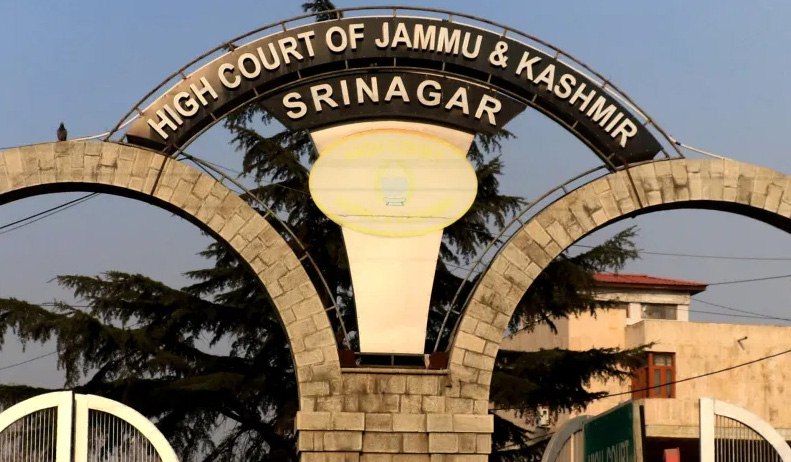Excelsior Correspondent
SRINAGAR, Apr 23: High Court has quashed trial court orders directing re-investigation of FIR in which proceedings were dropped after the police submitted the closure report of the same after due investigation which was accepted by the trial court.
Justice Sanjeev Kumar allowed the petition filed by the person who was accused of commission in the FIR. The court has set aside the impugned orders passed by the District Judge as well as the Chief Magistrate whereby re-investigation of the FIR was ordered.
“Further investigation, if any, carried out by the police in terms of the impugned order passed by the Magistrate is illegal and non-est in the eyes of law and is, therefore, also quashed. The aggrieved person is however left free to file a fresh complaint before the Magistrate concerned”, Justice Kumar said.
The court after a threadbare discussion of the issue of reinvestigation of FIR came to the conclusion that there is no obligation on the Magistrate, taking up for consideration the closure report submitted by the police under Section 173 CrPC, to put the victim or close relative of the deceased to notice, unless such person is an informant who has lodged FIR.
Referring the Section 173(2) of CrPC court said it recognizes the right of the informant, by whom the information relating to the commission of offence was first given, to have the action taken by the police on his report, communicated to him simultaneously with the forwarding of report in the prescribed form to the Magistrate empowered to take cognizance of the offence on a police report.
“In such a situation, if the protest petition is lodged by the complainant before passing of the final order by the Magistrate on the police report, the Magistrate shall be bound to take the same into consideration before deciding to proceed on the closure report submitted by the police in one way or the other”, the court clarified.
Court said that the protest petition filed by the informant (Aggrieved person) after the closure report of FIR submitted by the police upon notice or by the complainant without notice shall be considered by the Magistrate when he takes up for consideration the closure report submitted by the police under Section 173 CrPC.
“If the Magistrate is persuaded by the contents of the protest petition and the material placed therewith not to accept the closure report and take cognizance instead, in such situation, the Magistrate would be taking cognizance on the police report and would not be required to proceed under Section 200/201 CrPC”, reads the judgment.
Court decided that the FIR in the case in hand was registered on the basis of information received by the police through reliable sources and, therefore, there was no obligation on the Magistrate, considering the closure report, to give a notice to the informant or the complainant.
“Claim ably, the father of the deceased whose son had died in the case filed a protest petition before the Magistrate, but the same was filed at the time when the Magistrate had already accepted the closure report and dropped the proceedings. In such a situation, the Magistrate could not have reviewed its own order of accepting the closure report, but he could have still proceeded to treat the protest petition as a complaint, provided it fulfilled the requirements of a complaint”, court said.
Court added that this aspect was not considered by the Magistrate and the Revisional Court, which was approached by the father of the deceased son, did not find any fault or infirmity in the order passed by the Magistrate accepting the closure report, but relegated the aggrieved father to the remedy of pressing his protest petition before the Magistrate.


